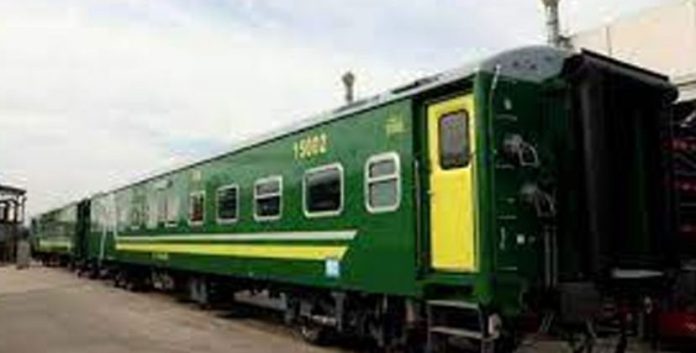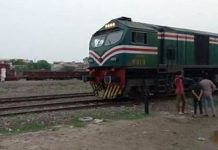ISLAMABAD: Pakistan Railways is set to procure 230 passenger coaches and 820 High Capacity Wagons under the Public Sector Development Programme (PSDP) aiming help to improve the speed of the trains and ensure adherence to fixed timings.
“Out of the total, around 46 Completely-Built-Up (CBU) passenger coaches have been procured up till now while the remaining 184 would be manufactured in the country and the couches would be able to travel at the speed of 160km/h,” said an official in the Ministry of Railways.
“Pakistan Railways is putting maximum efforts to complete rehabilitation and reconstruction work on the railway track, improving the speed of the locomotives to carry passengers to their respective destinations on time,” he added.
Unmute
The infrastructure, including the track and signaling system from Karachi to Peshawar, Main Line-I (ML-I), and doubling of track from Lahore to Peshawar (462.20 Km) was also being revamped, he added.
The official noted that the length of the track was 1,726 kilometers and the department has planned to improve speed up to 160 kilometers per hour in the project of up-gradation of ML-I under the China-Pak Economic Corridor (CPEC).
He said that the rolling stock being procured under this project would be capable to run at a speed of 160 km/h whereas the department had a dedicated fleet of 55 diesel-electric locomotives of 4000-4500 HP for freight operation to cater maximum haulage at higher speed.
“The Computer Based Interlocking (CBI) system is installed on 48 stations of ML-I, to improve signaling and interlocking for higher speed and safety of train operation,” the official added.
To a question, he said that Pakistan Railways was a big organization comprising of around 63,000 employees and its network was spread throughout the country.
The official said that the employees were well cared for owing to having several welfare activities, including healthcare facilities through an intensive network of hospitals, dispensaries, and child healthcare units.
He said that provision of government accommodation according to entitlement and priority list, staff benevolent funds, benefits and incentives provided through Prime Minister’s Family Assistance Package policy for deceased employees’ families were part of these facilities.
While the other facilities included benefits and incentives provided through policy for disabled employees’ families, monthly grants to widows scale-wise, the establishment of primary and high schools, industrial schools to teach handicrafts, sports activities, pick and drop facility for schools/offices, installation of water filters plants, a special provision of five medical seats in Riphah Islamic Universities with the reduction of 50 percent in admission and tuition fees.

















